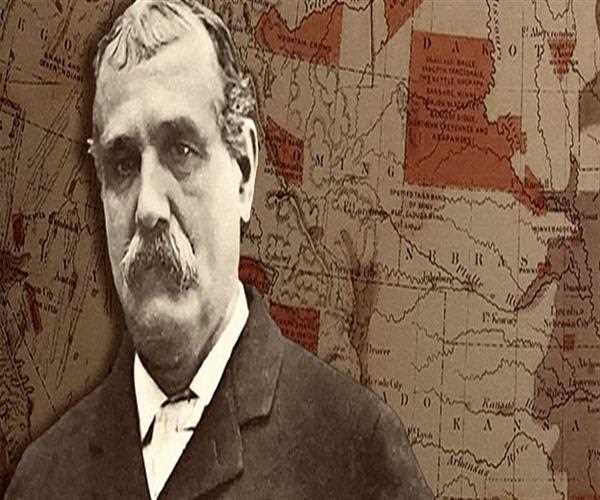
14-May-2024 , Updated on 5/14/2024 10:53:10 PM
Francis A. Walker | Monetary Theory
Francis Amasa Walker, who was born on July 2, 1840, in Boston, Massachusetts, was not only the American economist and statistician but also the important personality in the field of economics. His works on monetary theory and wage determination have been a great contribution to the field of economics and the way it is studied even now. Let’s look at his early life, his education, his money theories and some of his other achievements.
Early Life and Education
Coming from a family that was always involved in the education and public service system, Walker was born into a family that was rooted in academia and public service. His father, Amasa Walker, was an economist and a politician, and thus, he planted in Francis the love for knowledge and public matters since he was a small kid. Francis was surrounded by a really intelligent environment when he was a kid, and because of this he was very interested in economics and other social issues.
He relocated to the American University of Amherst College to continue his study after completing his elementary schooling. However, in 1861, during the American Civil War, he went to join in the Union Army, interrupting his studies in the field.
On one side, the war blocked Walker a lot of time, on the other hand, his experiences during the war altered his view of the economy and society, thus, giving him the knowledge which later he used in his works.
Government Service and other Advancements
In 1869, Walker was given the post of the head of the Bureau of Statistics in the U. S. Department of the Treasury. In his term, he applied the statistical techniques that would later make the economic data more accurate and useful. He was also the superintendent of the 1870 and 1880 censuses, which extended their coverage and thus it was possible to obtain a more complete representation of the changes that the United States was going through.
Contributions to Wage Theory
Through his effort, one of the greatest achievements of Walker was his work on wage theory. He was the one who opposed the wages-fund theory, which was the one that said that the whole wage bill was already determined by the capital that was at one's disposal for the labor.
Instead, Walker advocated for his "residual claimant theory" of wages. This theory assumes that wage payments were set based on the amount that remained after other production costs have been paid for, which include rent, interest, and profit. Although his idea was not accepted by the majority in the past, it led to a better understanding of the wage determination.
Influence on Monetary Theory
Walker has also made contributions to monetary economics that go beyond wage theory. His book "Money," which came out in 1878, was part of the development of the concept of the function of money in the economy.
He made a study on the aspects like the character of money, its circulation, and the effect it has on the economic stability. Walker's writings helped to modernize the character and scope of monetary theory, which in turn paved the way for the advances that would follow this field.
Academic and Organizational Leadership
Besides his government service and scholarly work, Walker was also doing that for academic positions that are prestigious. He taught political economy as a professor at Yale University between 1873 and 1881 and after that he was the president of
MIT till his death in 1897.
Walker was not only a leader in the academic world, but also gave a hand as the president of the American Statistical Association and the American Economic Association, thus, he became even more influential in economics.
Legacy and Impact
Walker had a lot on his plate when it came to economics and his contributions to it were vast and deep. His endeavors to revise the statistical methods, question the traditional economic theories, and make the monetary theory a new subject for the coming generations of economists have been the basis for his modernization of the economic science.
While some of his ideas were opposed by people in his time, many of them later on were taken back and considered for their wisdom. Walker's legacy is still surviving in the field of economics and the scholars are still looking for new ways to explore the next frontiers in the economic thought.
Conclusion
To sum up, Francis A. Walker was an innovative person in economics whose writings had a great impact on the growth of the subject. Walker's contribution in statistical methodology, wage determination and monetary economics has left a mark on economic thought which still exists in the modern economy. From his scientific researches to his theories, the legacy of Walker has been left behind, and he remains a symbol of intellectual curiosity.

Student
An MBA in finance imparts and improves management aptitude, inventive ability, critical thinking ability, and so forth. It offers a real-time experience that fabricates a staunch career foundation for students and working professionals. It helps them to thoroughly understand the financial sector.
Join Our Newsletter
Subscribe to our newsletter to receive emails about new views posts, releases and updates.
Copyright 2010 - 2026 MindStick Software Pvt. Ltd. All Rights Reserved Privacy Policy | Terms & Conditions | Cookie Policy